Special Report: International Widows Day – Changing the Narrative of Women’s Identity and Economic Freedom
Did you know there are an estimated 258 million widows around the world, and nearly one in ten live in extreme poverty.
While many cultures force women to become tagged and identify with widowhood as a state of mind, at LightRay Media, we are deliberately choosing to retell and change this narrative in this report by giving the insights and background that has led many women to mistakenly assume widowhood as an identity, which it is not.
A widower, a man, is not seen to be identified with that tag. Men understand that it is simply a phase, an incident that does not have the power to hold them down. Women who lost their partners are encouraged to tap into their inner worthiness and confidence to rise above the incident and not become the incident.
By Ofeh-Mamuzo and Ejiro Umukoro
The International Widows’ Day is on 23rd June of every year. The United Nations observes 23 June as International Widows Day (resolution A/RES/65/189) since 2011 to draw attention to the voices and experiences of widows and to galvanize the unique support that they need. This day is marked as an occasion to educate the public on issues of concern, to mobilize political will and resources to address global problems, and to celebrate and reinforce achievements of humanity, take a look at some of the issues affecting widows around the world and what must be done to safeguard and advance their rights.
For many widows, the death of their spouse can be one of their most difficult and painful experiences. While it’s impossible to understand what they’re going through fully, there are things we can do to help make life easier for those who have experienced this tremendous loss.
Here are three things a widow wants you to know:
1. Give Much-Needed Support.
Most widows feel entirely alone once their spouses pass away – after all, the person they leaned on and spent countless days with is no longer there. That’s why it’s so important for us to take the initiative and provide compassionate support during this difficult time.
This could come in various forms, such as simply sending an occasional card or text message, calling to check in, or even taking them out for lunch or a cup of coffee. Showing them that you care goes a long way in helping them cope with their grief.
2. Listen Without Judging
Don’t get caught up in saying “the right thing.” Widows often crave understanding more than anything else – so be sure to lend an open ear when conversing with them. Let them tell stories about their loved ones without offering advice or opinions.
3. Respect Their Grief Journey.
Every individual grieves differently, so we must respect each person’s unique process and journey toward healing after the passing of a spouse. Resist giving unsolicited advice, asking when they plan on moving on, telling them how much better they’ll feel soon, etc.
Extending kindness and thoughtfulness go a long way in providing comfort during this mourning period. By being mindful and supportive both before & after the loss – we can help make life a bit easier for those going through this challenging experience.
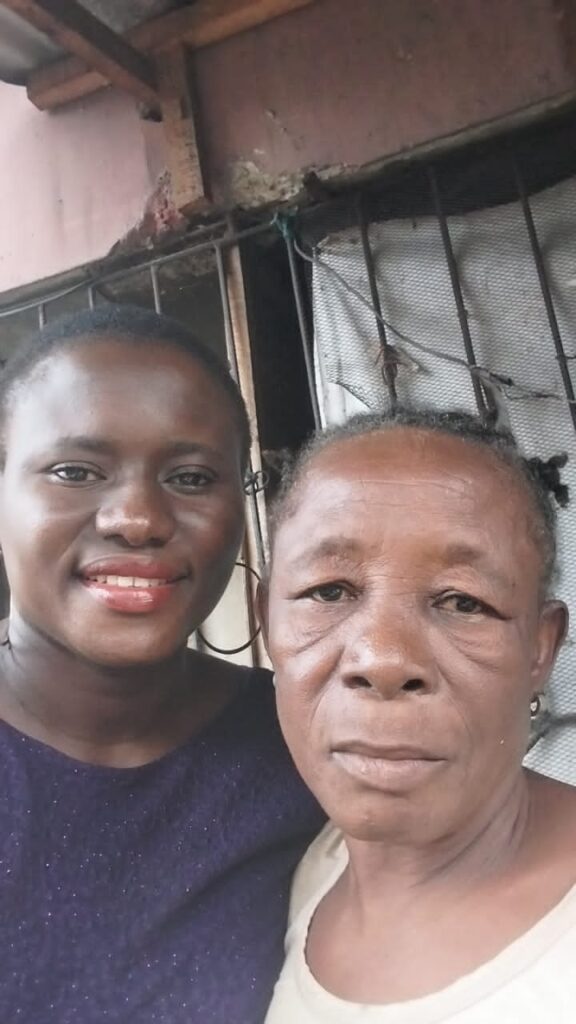
Problems faced by widows
For many women around the world, the devastating loss of a partner is magnified by a long-term fight for their basic rights and dignity. Despite the fact that there are more than 258 million widows around the world, widows have historically been left unseen, unsupported, and unmeasured in our societies.
Today, as armed conflicts, displacement and migration, and the COVID-19 pandemic leave tens of thousands of women newly widowed and many others whose partners are missing or disappeared, the unique experiences and needs of widows must be brought to the forefront, with their voices leading the way.
Experience from the past, shows that widows are often denied inheritance rights, have their property grabbed after the death of a partner, and can face extreme stigma and discrimination, as perceived ‘carriers’ of disease. Worldwide, women are much less likely to have access to old age pensions than men, so the death of a spouse can lead to destitution for older women. In the context of lockdowns and economic closures, widows may not have access to bank accounts and pensions to pay for healthcare if they too become ill or to support themselves and their children. With lone-mother families and single older women already particularly vulnerable to poverty, this is an area that needs urgent attention.
Now more than ever, this day is an opportunity for action towards achieving full rights and recognition for widows. This includes providing them with information on access to a fair share of their inheritance, land and productive resources; pensions and social protection that are not based on marital status alone; decent work and equal pay; and education and training opportunities. Empowering widows to support themselves and their families also means addressing social stigmas that create exclusion, and discriminatory or harmful practices.
Furthermore, Governments should take action to uphold their commitments to ensure the rights of widows as enshrined in international law, including the Convention on the Elimination of All Forms of Discrimination Against Women and the Convention on the Rights of the Child. Even when national laws exist to protect the rights of widows, weaknesses in the judicial systems of many States compromise how widows’ rights are defended in practice and should be addressed. Lack of awareness and discrimination by judicial officials can cause widows to avoid turning to the justice system to seek reparations.
Poverty
• No access to credit or other economic resources, even for childcare or education.
• No rights or limited rights, to inheritance or land ownership under customary and religious law.
• Dependent on the charity of their husbands’ relatives.
• Disowned by relatives and made homeless, forcing many women to seek informal work as domestic labourers or turn to begging or prostitution.
• In some cases, widows can become liable for the debts of a deceased spouse.
Violence
• Particularly across Africa, widows find themselves the victims of physical and mental violence – including sexual abuse – related to inheritance, land and property disputes.
• Widows are coerced into participating in harmful, degrading and even life-threatening traditional practices as part of burial and mourning rites for example, widows are forced to drink the water that their husbands’ corpses have been washed in. Mourning rites may also involve sexual relations with male relatives, shaving of the hair and scarification.
Health
• Poor nutrition, inadequate shelter and vulnerability to violence, combined with a lack of access to health care.
• Sexual and reproductive health needs of widows may go unaddressed.
• Widows are particularly vulnerable in the context of HIV and AIDS. Women may be kept unaware of the cause of their husband’s AIDS-related death and made to undergo ritual cleansing through sex with male relatives regardless of HIV status. The economic insecurity stemming from widowhood also drives some women and girls to sex work.
Conflict related issues
• Vast numbers of women are widowed due to armed conflict.
• Widows struggle to care for themselves and their children.
• Trauma during and after the conflict: many women see their husbands tortured, mutilated or suffering other cruel and inhuman treatment. Widows may themselves be subject to discrimination or conflict-related violence – including sexual violence where they are raped, mutilated, or infected with HIV.
Methodology
We completed a survey between May 13th and July 31st, 2023. Out of the 50 respondents, 10 were required to have lost their spouse within the past 20 years, be between 50 and 79 years of age, we set flexible quotas and achieved 55% of widows who currently work and 45% who do not. We also established flexible quotas by age in order to achieve a large enough sample of younger widows to analyze. Six percent of widows are in their 20s-40s, 20% are in their 50s, 32% are in their 60s, and 42% are in their 70s. Data were weighted according to age, and employment.
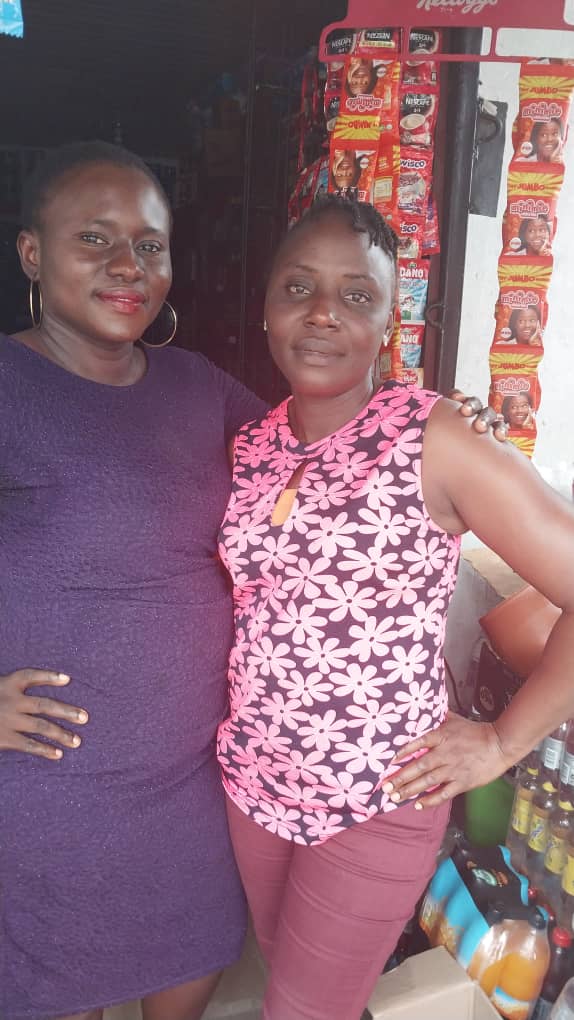
KEY FINDINGS
Nearly half of widows leave their jobs, Forty-six percent of widows leave their jobs after their spouse dies, including 35% who switch to a new job and 11% who drop their jobs and become unemployed as widows. This leaves 55% who remain with their same jobs after their husband’s death. The reasons why fifty-five percent of widows continued working even after their spouse’s death are because they self-employed or are top company managers who were trusted and relied on, with a satisfactory performance. More widows kept their jobs because they were educated about their financial options.
Interestingly, leaving the job is not always the widows’ choice. Among the third of widows who stops working, nearly three in ten were forced to do so because their tradition requires them to mourn and be indoors for up to 1 year. Among the one in ten widows who stopped working after their spouse passed, more than four in ten did so because they felt they were no longer needed or felt they couldn’t handle their office on their own. In fact, four in ten widows say a major factor in stopping work was that they were taught by tradition to be invisible. Therefore, it is important for employers, family members and friends to be attentive and helpful when one loses a spouse. On the other hand, half of widows who did not have a job while their spouse was alive started working after their spouse died. The reasons behind why widows started working following their spouse’s death is the realization that they need a source of income
Most widows have no investment, financial planning, retirement and retirement income planning and education plan for their children, Widows worry about having enough money and long-term care, majority faced financial hardship after their spouse passed. It is a misconception that losing one’s spouse always leads to worse financial situations.
In this study of widows with at least N1,000,000.00, we found that few widows tend to be in decent financial shape after their spouse dies. The reasons for their increased or at least stable asset levels appear to be largely due to the payouts they receive from their spouse’s life insurance, administration of wills and estates and pension plans. Few are worried about their ability to pay for everyday bills and expenses or expect they will have to work in retirement.
In the long run, however, widows express concern about things such as having enough money to last throughout their lifetime or about being able to afford their children’s education requirements or long-term care.
Widows are more concerned than widowers about their ability to stay in their home as they age. Widows are less likely to say they are financially secure, knowledgeable about savings and investment issues, confident about their ability to live comfortably in retirement, and have a plan for income in retirement. Yet, widows financial insight grows out of necessity after they lose their husbands.
Financial responsibility shifts when a spouse dies. Widows’ advice to others who may one day face the loss of their spouse is to become more aware and knowledgeable about financial matters. This is consistent with the finding that widows had to take on more financial responsibility than did widowers when their spouse died. Widows were, for the most part, still largely involved in their finances when their spouse was alive, but the burden of that responsibility shifted entirely to their shoulders when their spouse passed.
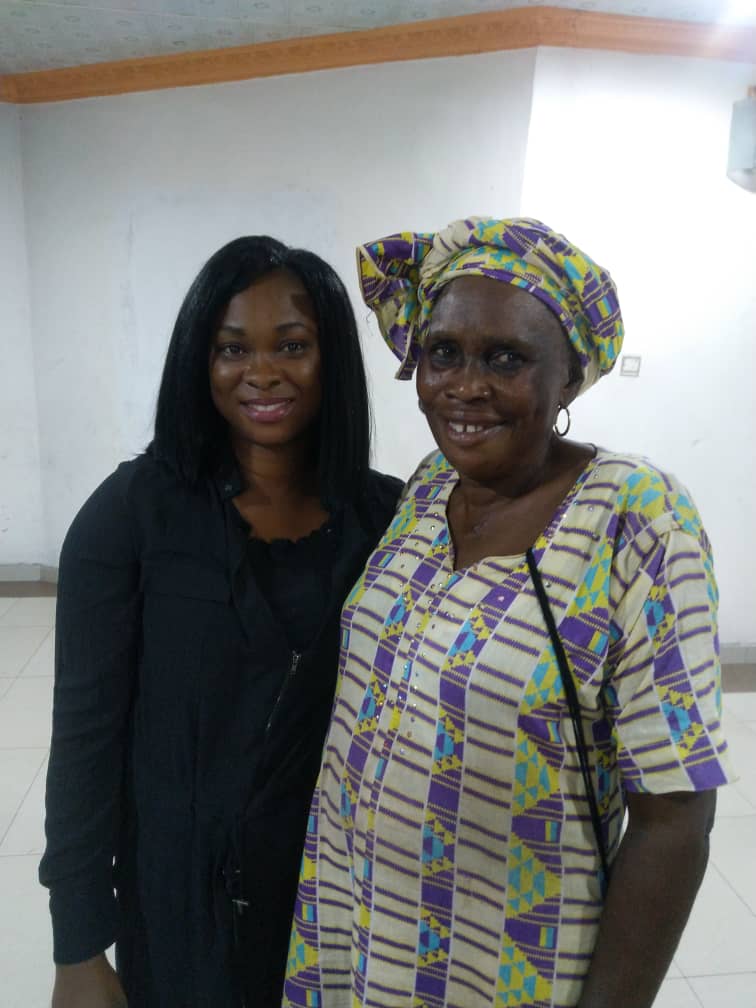
FINANCIAL GOALS, CONCERNS, AND LESSONS LEARNED
Half of the widows report that saving for a child’s education, paying off debts, paying for healthcare/health expenses, saving for a rainy day/emergencies, saving for retirement, keeping up with everyday bills and expenses and maintaining your lifestyle in retirement.
- What are your top three financial goals today? Please select three.
Paying off debt, Keeping up with everyday bills and expenses, Saving for retirement, Maintaining your lifestyle in retirement, saving for a child’s education.
Which of these is your most important financial goal?
Widows are most concerned about Keeping up with everyday bills and expenses, paying off debt and Maintaining your lifestyle in retirement. - How concerned are you about the following finance-related issues today?
Your ability to pay for a child or grandchild’s education
Your ability to pay for everyday bills and expenses
Your ability to leave an inheritance to your children or heirs
Note: Widows are more concerned about their ability to stay in their home and afford rent as they age. Extremely/Very concerned Somewhat concerned Not too/Not at all concerned
When their spouse passed, widows concerns were the same as they are today.
Extremely/Very concerned Somewhat concerned Not too/Not at all concerned
When their spouse passed, widows concerns were the same as they are today. (23% vs. 14% extremely/very concerned). - Who will help you manage your finances if you become unable?
Your ability to make prudent financial and investment decisions on your own
Your ability to save for retirement
Your ability to stay in your home as you age (80% vs. 20% children/family members). - Who will take care of you in old age?
(80% vs. 20% children/family members). - Thinking back to the time just after your spouse’s death, how concerned were you then with the following?
Just after their spouse’s death, widows were more concerned than widowers about their ability to stay in their home as they age, having enough money to last throughout their lifetime, and their ability to pay everyday bills and expenses.
Total Extremely/Very concerned Somewhat concerned Not too/Not at all concerned
At the time of their spouse’s death, about half were concerned about their ability to make financial decisions and who would help manage their finances. - How strongly do you agree or disagree with each of the following?
I am financially secure, I am confident in my ability to live comfortably throughout my retirement, I am knowledgeable about saving and investment issues, I have a plan for how to turn my savings and investments into income for retirement, I am concerned about being a burden to my family as I age.
Widows are less likely than widowers to say that they are financially secure, knowledgeable about saving and investment issues, confident about their ability to live comfortably in retirement, and have a plan for income in retirement. - Compared to before your spouse’s death, would you estimate your total investable assets are…? Lower than when spouse was alive, Similar, Higher than when spouse was alive. (70% vs. 20% lower/similar). Very few faced significant financial increase after their spouse passed.
- Did your spouse have any of the following financial products that paid you benefits after your spouse’s death?
An annuity, A pension or DB plan, Life insurance, None of these.
Life insurance and plan payouts were the primary protective driver behind the growth or stability of widows’ asset levels. - Thinking back to the time of your spouse’s passing, how strongly would you agree or disagree with the following?
My retirement plans changed and I needed to delay my retirement, I had to go back to work for financial reasons, I asked my family for financial help, I asked my friends for financial help
Strongly agree (35-40), Strongly disagree (10-15)
At the time of their spouse’s passing, widows were also more likely to ask family and friends for financial guidance and advice. - How does your current level of financial knowledge compare with how knowledgeable you felt before your spouse passed away?
Four in ten widows became more knowledgeable about their finances after their spouse died. - Which of the following are reasons why you are now more financially knowledgeable than you were before your spouse passed away?
Significantly, more widows increased their financial knowledge after their spouse passed. The reasons widow became more knowledgeable after their spouse’s death are that they have taught themselves more about financial planning and widows in particular became more involved in financial decisions. - What are some of the financial lessons you learned from losing your spouse that you like to share with others so that they may be better prepared?
Widows’ advice is to be more knowledgeable about financial matters, have finances in order, be prepared, know passwords to accounts. There will be loss of income, be ready to take care of yourself, expect the unexpected, communicate, be careful with spending/keep expenses to a minimum, get professional help especially financial, save (more), be involved/informed, don’t make any major changes too quickly, have a (updated) will, have a plan, get paperwork in order/keep good records, buy insurance particularly life, get finances in order be aware/knowledgeable about financial matters. “Both partners need to been involved and knowledgeable about the home financial position and workings, from the everyday to planning for the future.” -Widow “Make sure you are conversant with all aspects of your financial situation, as life can change in an instant. Know where everything is, what everything is worth, and become comfortable dealing with money issues.” -Widow
Widows, in particular, are more likely to say that they wish they had been more aware or knowledgeable about financial matters before their spouse died.
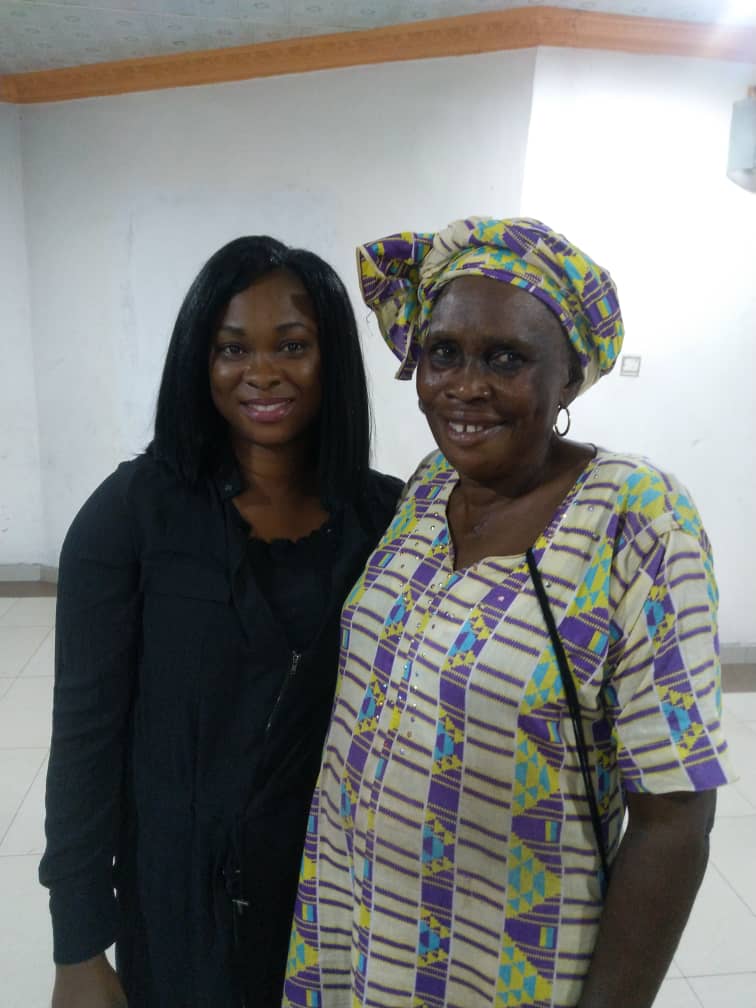
OTHER FINDINGS
Adjusting to life and an unfamiliar ‘new normal’ after the death of a spouse or partner can be a long, emotional journey.
Establishing a new day-to-day after widowhood isn’t easy and there can be many challenges and practical questions too but members of A. OFEH-MAMUZOH & ASSOCIATES are on ground to offer tips and advice.
Simple matters such as “Wedding rings, what to do with clothes and other belongings and when to go back to work are among the most common questions we see and we believe that there’s no right or wrong answer to these questions. Everybody grieves differently, but the support of other people who have also experienced a loss can be invaluable, whether you find the answer you are looking for, or take comfort in knowing you are not the only one to be facing similar challenges.”
Here are 8 questions and answers you may want to know, but are unsure how to ask.
- How long do I wear my wedding ring for?
Uzioma – “mine was buried with my husband as is the tradition”
Sioni — “I have no intention of ever taking mine off.”
Tega — “I’m going to keep wearing mine until I start dating seriously.”
Rebecca — “We weren’t married but I wear a wedding ring now as a symbol of the relationship we had. I’d rather be known as a widow than single.”
Paulina — “Mine was quickly removed as I got fed up with all the questions about where my husband was.”
Ejaieta — “I wear my wedding ring on a chain when I go out.”
- How do I maintain a relationship with my inlaws?
Uzioma — “I’m so lucky because I’ve gained a second family out of it, and though we’ve had some issues, we’ve been able to make decisions together as the three of us.”
Sioni — “I visit infrequently because they live so far away. This suits us.”
Tega — “Delicately. Especially if my children are involved. Don’t let them make you feel guilty, ever.”
Paulina — “My in-laws have been fantastic. They’re very supportive, even now I’m in a new serious relationship.”
Ejaieta — “We arrange family get-togethers, mostly on birthdays and special occasions.”
- What side of the bed do I sleep on?
Uzioma — “My normal side. It’s comfy and familiar.”
Sioni — “In the middle!”
Tega — “The opposite side to what I used to.”
Paulina — “I still sleep on my side of the bed, but sometimes I turn my hubby’s pillow around so it feels a bit like he’s laying there.”
Ejaieta — “My side. My daughter hasn’t slept in her own bed since her daddy died, so she sleeps on his.”
- When is it okay to start dating again?
Uzioma — “Whenever you want to. I’m nine months in and I’m ready to dip my toes in.”
Sioni — “I haven’t, and don’t know if I ever will.”
Tega — “I have no idea. I need company, not romance.”
Paulina — “When it feels right.”
Ejaieta — “married to my children for now.”
- When do I go back to work?
Uzioma — “mourned for 1 year, by the time I returned from the village, I had lost my job.”
Sioni — “Never. I can’t see myself going back.”
Tega — “I’d been looking after my husband for close to 18 months. I’ve been off for almost two years now. I don’t think I’m ready, but I’m looking forward to going back.”
Paulina — “I went back after six months. I think I was ready.”
Ejaieta — “I went back after about four weeks mainly because my kids were asking why I wasn’t going to work if they were going to school.” - What do I do with their belongings?
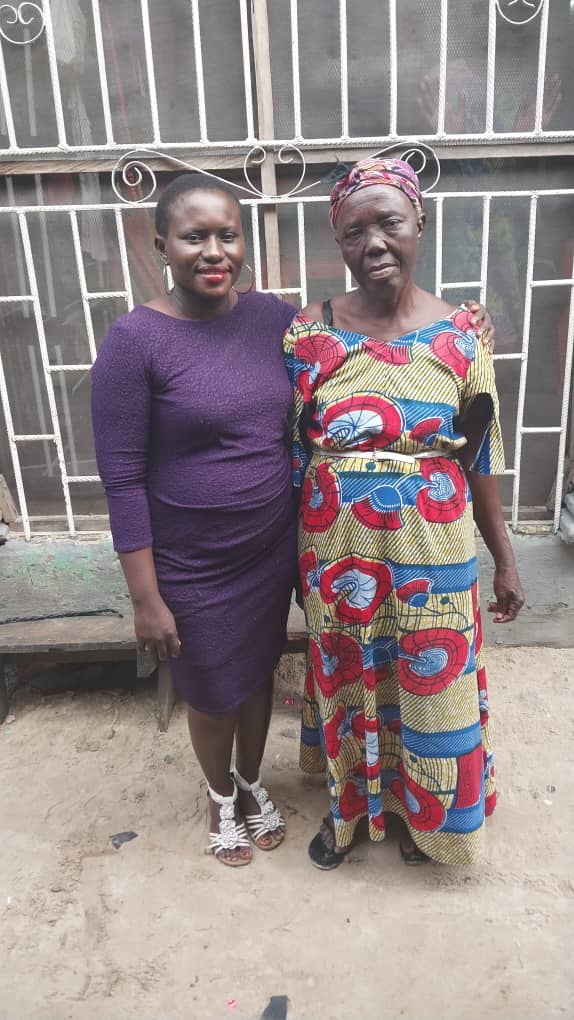
Uzioma — “I made memory boxes for myself and the kids.”
Sioni — “his family cleared everything out. Nothing is sacred but memories.”
Tega — “His family aske my kids and I to leave the house… we have nothing of his.”
Paulina — “I have a good friend who works for a Christian homeless charity and I gave some clothes to him. I have had thank you letters from people who have received the clothes which was special.”
Ejaieta — “I still have everything. I don’t feel like I can part with anything at the moment.”
- How do I attend social events without my partner?
Uzioma — “simple, don’t go out.”
Sioni — “It’s not really a problem anymore.”
Tega — “I am basically not interested.”
Paulina — “I tend not to go to the things that we both would’ve gone to.”
Ejaieta — “I don’t really socialise. I just don’t feel like it.”
- How do I explain my partner’s death to our children?
Uzioma — “I said that Daddy’s heart stopped working, and that he died, its better they know from the start.”
Sioni — “I told them that dad had died and couldn’t come back, but that he lived on in our hearts.”
Tega — “My boys were adults by the time their dad died. We had to be open with one another.”
Paulina — “Honestly and factually.”
Ejaieta — “One of my friends broke the news to them as she had to collect them from school, I couldn’t do it.”
Did you know?
• There are an estimated 258 million widows around the world, and nearly one in ten live in extreme poverty.
• Widows are coerced into participating in harmful, degrading and even life-threatening traditional practices as part of burial and mourning rites.
What you should know about widowhood
As widows move through their own experiences of grief, loss, or trauma after the death of a spouse, they may also face economic insecurity, discrimination, stigmatization, and harmful traditional practices on the basis of their marital status.
TAKE CONTROL OF YOUR LIFE
• It might seem easy to accept loss and wallow in despair. But that won’t help you move on.
• Widows should prepare to accept the life they’re living, take it by the horns and move on from the darkness when a loved one passes away. That’s the only way they can fully embrace the new world they’ve found themselves in.
• Consider getting into good physical shape with an improved diet and a schedule for training, anything that gets you focused on something constructive can help you move on. Remember, you are responsible for yourself, it is you who has to take action.
• Have and maintain your spiritual wellbeing, no matter your religion. Love God, spend time in His presence and doing His work.
• Love your children and treasure every phase, you are experiencing these phases for you and your late spouse.
• Love yourself. Spend quality me-time with yourself. Take good care of your health.
• Breathe. Stay calm. Be present.
There is something powerful about the strength of a widow. Her resilience, her drive, Her broken spirit that has been carefully mended and crafted back together.
There is something about a widow. Her ability to rise above and overcome all while moving forward bowing her head in humble reverence.
There is something powerful about the strength of a widow. Her resilience, her drive, Her broken spirit that has been carefully mended and crafted back together.
There is something about a widow. Her ability to rise above and overcome all while moving forward bowing her head in humble reverence.

There is something about the way she wears dignity and strength—not of her own but that of her Maker.
There is something sacred about the unity and communion she has with the one who is rebuilding her day by day.
There is something about the reflection she sees when she looks up and is faced with the reality of everything she must carry. There’s something about the softness in her touch when you know the battle scars endured to feel the warmth of life flowing through it again.
There is something about the fierceness in her heart when the thought of her children sparks a fire that blazes with such intensity.
There is something about her, something about me, something about the place we wake up in and know that another sunrise has come; and we can proclaim that through the graciousness of a good God that we made it another day.
There is something about a widow when the heart holds its breath questioning to allow it to beat again—knowing the choice has to be made to let it keep beating—to let it keep fighting.
A widow is like a spring morning, a constant glimmer of new growth pushing through the old to bring about the new. And to the nights that bite bitter cold and to the heart cries that are heard down the road begging God to take it away—we take it and place it at His feet time and time again. We do this knowing that God may not take it away, but that our ashes will see beauty yet.
To all beautiful widows, remember this: widowhood is not your identity, it is merely a phase. You are seen and you are not forgotten. Choose today to be intentional about living a fuller and richer life where you engage in activities and build network and communities that allows you survive and thrive as human being, and not just a gender defined by societal, religious, and traditional cultures that stifles your advancement and attainment.





Comments